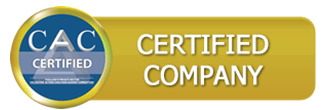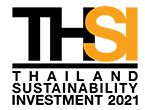Good Corporate Governance
Anti-Fraud Policy
1. General Requirement
1.1 Purpose
This policy is established to be a framework for formulating measures related to fraud prevention, detection, and management, as well as continuously improving fraud prevention measures. It also includes fraud investigation measures and reporting protocols in accordance with regulators’ regulations and the Company’s Good Corporate Governance Policy.
1.2 Scope
This policy encompasses the prevention of fraud related to directors, executives, employees, Company’s authorized persons, insurance intermediaries, outsourced service providers, insureds, beneficiaries, business partners, and their authorized persons. The Company establishes continuous entity-wide measures for managing fraud-related risks to appropriately develop and establish preventive measures. Company’s personnel must study this policy and adhere to it strictly. Those who violate this policy may face disciplinary actions, legal penalties, or termination of business relationship.
1.3 Effective Date
This policy shall be effective from the date of approval by the Board of Directors.
1.4 Review Frequency and Revision
This policy must be reviewed annually, or when a significant change arises.
Any significant revisions, review, or renewal of this policy must be considered by the Corporate Governance and Sustainability Committee before being submitted to the Board of Directors for approval.
1.5 Responsible Function
The Compliance Office is the responsible function of this policy.
2. Main Requirement
2.1 Definition
| 2.1.1 | “The Company” means Bangkok Life Assurance Public Company Limited. | |
| 2.1.2 | “Subsidiary” means companies in which the Company holds shares directly or indirectly. | |
| 2.1.3 | “Fraud” means an intentional act or omission, deception, or misrepresentation by external and/or internal persons to seek unlawful benefits for themselves or other related parties. The Company classifies fraud into the following three groups according to the type of person involved. |
| 2.1.3.1 | Internal fraud encompasses asset misappropriation or malpractice by Company’s personnel, whether acting alone or in collusion with other internal or external individuals. Example behaviors include misappropriation, document forgery, and the concealment or falsification of important information on financial statements. | |
| 2.1.3.2 | Intermediary fraud involves agents, brokers, business partners, and outsourced service providers. Examples include a third-party administrator (TPA) committing fraud against the Company and/or policyholder in the claim process by misappropriating premium or forging documents. | |
| 2.1.3.3 | External fraud includes fraud committed against the Company by business partners, customers, or policyholders. Examples include insurance application fraud and claim fraud. |
2.2 General Principle
The Company is committed to operating with honesty, fairness, and transparency, and prioritizes the prevention of potential fraud that may arise from its operations. Therefore, the Board of Directors has established this Anti-Fraud Policy to raise awareness and emphasize the importance to preventing all forms of fraud in accordance with the principles of good corporate governance and sustainability.
2.3 Role, Duty, and Responsibility
| 2.3.1 | The Board of Directors (“BoD”) establishes the policy framework and enforces this policy. | |
| 2.3.2 | The Corporate Governance and Sustainability Committee reviews this policy before the responsible function presents it to the Board of Directors. | |
| 2.3.3 | The Management Committee (“MC”) applies this policy to the Company’s business operations. |
2.4 Requirement
2.4.1 Zero Tolerance
The Company applies “Zero Tolerance” practices and does not accept any dishonest actions which affect the Company and its stakeholders committed by any persons to seek unlawful benefits for themselves or others.
Company’s personnel must strictly adhere to this policy and must not, under any circumstances, engage in fraud. External persons who have business relationships with the Company are also encouraged to adhere to this policy.
2.4.2 Risk Management and Fraud Handling
The Company must conduct entity-wide fraud risk management and establish measures for promptly managing and addressing actual or potential fraud within a suitable timeframe. Those measures must be sufficient to ensure that all relevant matters are thoroughly examined to identify the root cause, leading to the development and improvement of processes or measures to effectively prevent future fraud. Moreover, the Company must diligently carry out disciplinary or legal action against offenders.
2.4.3 Fraud Reporting
Company’s personnel must understand the nature and types of transactions that may lead to fraud, especially those related to their responsibilities, and consistently observe, study, and review abnormal indicators. They have a duty to communicate and prevent fraud committed internally or by those associated with the Company, without ignoring any instances of fraud. When witnessing fraud or instances that could lead to fraud, they must immediately report them to their supervisor or through the whistleblowing channel provided by the Company, and cooperate in the investigation process.
2.4.4 Governance
The Company’s fraud prevention framework encompasses risk assessment, prevention, management, and reporting. The Company will report the results of fraud risk assessment and fraud statistics to the Board of Directors.
2.4.5 Anti-Fraud Guideline
For efficient fraud prevention, the Company establishes an Anti-Fraud Guideline under this policy, which is regularly reviewed.
2.5 Penalty
Violation of this policy is considered violation of the Company’s Code of Conduct for All Personnel and may constitute an offense against the Company's rules, as well as other applicable laws, regulations, rules, or requirements.
We use cookies on our website to give the best experience including to purpose information and other contents. Using our website means you accept Terms and Conditions Privacy Notice and Cookies Policy.




